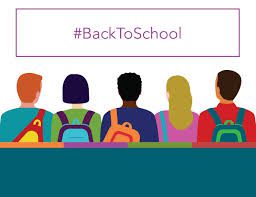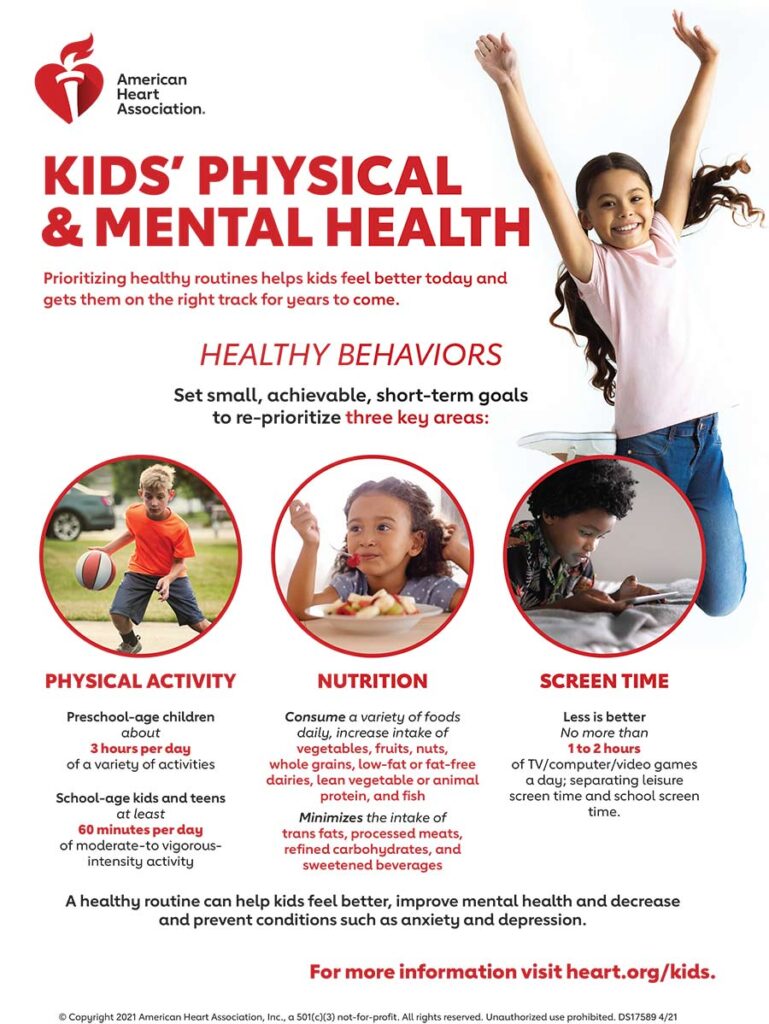
The phrase ‘back to school’ evokes many different responses. For some, school is easy and a refuge; for others, school is scary and friendless. There are a lot of things we can do as parents to set up our children for success.
I’m going to give you a heads up for my top 5.

Sleep: According to John Hopkins Children’s Hospital, children ages 3-5 need 10-13 hours of sleep nightly, children 6-12 years old need 9-12 hours of sleep nightly, and teenagers need 8-10 hours of sleep nightly. So, how do we accomplish this? It begins with routine. Here are some tips: Establishing a nighttime routine by stopping screen use at least an hour before bed, limiting caffeine, dimming the lights, taking a warm bath, and reading books together on a consistent basis is a good start. If issues arise, speak to your family doctor about any concerns. Going to bed and waking up at the same time is very important for the sleep schedule.

Addressing food insecurity: Over 9 million CHILDREN in the United States currently experience food insecurity according to the USDA. If you are able to help – donate, volunteer, advocate, amplify, and educate others because this is an ongoing problem, and it is NOT about laziness. If you need help feeding your children, speak to the school, food bank, grocery chains, social workers, and family members. All people, especially children, need food to grow, think, and stay healthy. While in survival mode, try to fix these less expensive foods because they have good nutritional value: Eggs, Oats, potatoes, beans, lentils, bananas, whole grain pasta, peanut butter, and frozen veggies.

Connection: Children of all ages need connection. They need to spend time with safe people who love them. They need to be active in positive activities. Children need connection to practice social interaction and effective communication. Some ways to establish this are through play dates, day care, extracurricular activities, and consistent family time like going to the library, going for walks, playing board games, eating and chatting together over a meal, and splurging once in a while on a paid activity.

Healthcare: Children get sick and need medical attention. Vaccinations, regular checks ups, and practicing good hygiene techniques like showering and teeth brushing are paramount to health. This is not always easy with parental work schedules, but in the long run keeping healthy will save money and produce better results in school, behavior at home, and even improved mental health.

Social/Emotional: Being a kid isn’t easy. Our job as parents is to love unconditionally and be better than our own parents in order to raise adults who are better than us. Start by setting reasonable boundaries based on safety and completing reasonable work in the form of schoolwork and chores. Next, encourage community. Children need people and activity as much as rest and family time. Scheduling balance takes intention. Listen, be the adult (don’t scream and yell), and apologize when wrong. Children who leave for school upset, scared, or worried cannot do well academically. Homes should be safe. If your home is not, get help.
Book Recommendations:
Attention Deficit Disorder & Learning Disabilities Barbara Ingerson PhD, Sam Goldstein PhD, and Sam Goldstein PhD
A Difference in the Family by Helen Featherstone
The Discipline Book by Sears and Sears
How Much is Enough by Jeal Illsley Clark PhD, Connie Dawson PhD, David Bredehoft PhD
Positive Discipline by Jane Nelson EdD
Raising Ollie by Tom Rademacher
Why Do They Act That Way? by David Walsh PhD
Resources:
http://www.acf.hhs.gov/occ This organization aids in the support of families that are low income by providing information and access services for afterschool/childcare.
http://www.feedingamerica.org This organization gives information on feeding families.
CDC’s Developmental Milestones for birth to 5 years old:
https://www.cdc.gov/ncbddd/actearly/milestones/index.html
Children and Adults with ADHD
https://chadd.org/
Child Welfare League of America
https://www.cwla.org/
Federation of Families for Children’s Mental Health
https://www.ffcmh.org/
Parent to Parent – USA
https://www.p2pusa.org/
National Information Center for Children and Youth with Disabilities
www.nichcy.org
